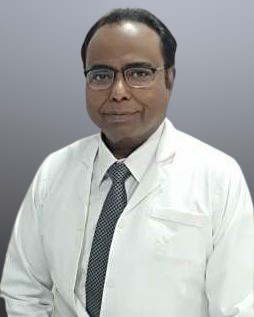Best Doctors for Psoriasis in Delhi
Psoriasis is a chronic autoimmune skin condition, defined by the swift buildup of skin cells resulting in thick, silvery-white patches. The raised patches, a common feature of plaque psoriasis, develop due to a complex interplay between genetics and environmental factors. This disrupts the normal function of the immune system, leading to an overreaction that causes rapid skin cell growth. While the exact cause remains elusive, key susceptibility factors include family history and certain environmental triggers. Unfortunately, there is no known cure for psoriasis; nonetheless, its symptoms can be effectively managed with appropriate treatment.
Delhi is home to numerous residents battling psoriasis. A robust network of psoriasis specialists and doctors for psoriasis treatment can be found in the city. Apollo Hospitals in Delhi hosts some of the best psoriasis treatment doctors dedicated to assisting patients navigate this chronic condition.









 Call Now
Call Now








